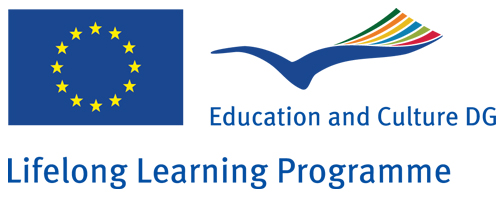|


Die Wille gGmbH
Scenes-
Theatre workshop II - First group
Title: "The Meyerhoff Family at Home"
Characters
The Meyerhoffs, a German family:
Hannelore, the Mother, aged 40: performed by a Turkish
woman.
Manfred, the Father, aged 43, works at the inland
revenue: performed by a young German man.
The twins: Maria, the Daughter, aged 15: performed
by a German woman
and Martin, the Son, aged 15: performed by a young
Turkish man.
Hassan, a young Turk, friend of Maria and school-buddy:
performed by a young Turkish woman.
Mrs Berg, neighbour of the Meyerhoff family, aged
60: performed by a German woman.
Storyboard
Scene 1:
Hassan visits the twins, Maria and Martin, at home.
They are sitting in their room. Martin performances
breakdance for the two of them. He wants to take
part in a contest "Germany's Next Superstar". The
young lovers, Maria and Hassan, are not very excited
about his performance. Martin offers cigarettes
and a bottle of beer, this is much appreciated
by both.
Scene 2:
The three notice the noise of the key in the door
of the flat. Hurriedly they hide the cigarettes
and the beer bottle. The parents, loaded with shopping
bags, come into the flat and bring the groceries
into the kitchen. Then, they both go into the children's
room, sniff around and demand, if somebody has
smoked. The kids deny it and Martin introduces
Hassan, his friend and classmate, who, he claims,
has come to help him with his homework.
Scene 3:
The parents do not really believe him. They go into
the kitchen. The father sits down and reads the
newspaper, the mother unpacks the shopping bags
and asks her husband several times to fetch the
crates with water, beer and juices out of the car.
The father, annoyed at being interrupted, calls
his son to do this task. Martin is angry because
he feels he is the one who always has to do all
the chores, replies that his sister could do this.
Finally Maria and Hassan go and fetch the crates.
The mother reproaches her husband for his behaviour,
for constantly scolding the kids and for being
too strict.
Scene 4:
Maria and Hassan come back with the crates and hide
two bottles of beer. Later on, the mother notices
the missing bottles. She goes into the children's
room and takes them to task. They deny. The door
bell rings. The mother goes to the door, Mrs Berg,
the neighbour asks her for a short talk. The both
women sit down on the couch. Mrs Berg complains that
the twins often make very noisy music. The mother
assures her that this will not happen again. On her
way out Mrs Berg reports that she noticed her daughter
Maria hugging and kissing with the Turkish boy in
the staircase a little while ago. The neighbour leaves
and the mother stays behind, confused and angry.
Scene 5:
The mother immediately tells her husband what she
has learned. The parents are outraged and go into
the twins' room, to take Maria to task. A severe
dispute unfolds between the daughter, the parents
and Hassan. Phrases with xenophobic content are
said: "My daughter and a Turk! That's unbelievable!
Go back where you came from!" etc. The twins stand
up for Hassan, but he leaves the room, angrily
swearing and returning insults. Maria follows him:
"I come with you, I cannot stay here any longer!"
The parents try to hold her back. The brother,
Martin, stays, saying: "And again I am alone and
caught between two stools!"
Scene 6:
The facilitator carries out a dialogue with the audience
(children in an after school day care center).
She asks them what they noticed and to state their
opinions about the feelings of the characters in
the performed conflict situation. The children respond
in an enthusiastic and emotional way. The facilitator
asks them also to suggest how the conflicts might
be dissolved. The solutions the children offer are
often seen from the parents' perspective, for example:
one year confinement to her room for the girl, supervision
by video camera etc. Later on these solutions are
called into question and the main topic became "Can
penalties solve conflicts or might there be other
ways?"
Props: 5 chairs, small table, shopping bags, 2 crates
with bottles, newspaper, furnishing fabric for decoration.
The concept and goal of the workshop was to have
the participants take on as much responsibility as
possible and to develop their own initiative. Their
motivation and courage to perform was enhanced by
different warm up exercises, frozen image techniques
and other exercises regarding body language and facial
expression known from the theatre. From the 3rd day
on the participants worked in two teams, developing
the themes, scenes and characters by themselves.
The task of the facilitators was to assist, to help
and to encourage.
In this workshop the one group ("Football with Friends")
developed a precise storyboard before the rehearsal
and performance, the other group ("The Meyerhoff
Family at Home") first developed the characters and
the main conflicts. The scenes arose by improvisation,
recurrence, analysis and improvement.
The interactive performance in front of
the audience: The performances of both teams became very lively
with the enthusiastic audience which was thrilled
from the beginning by different kinds of guessing
games (such as frozen images), which triggered the
vivid dialogue between actors and audience.
|